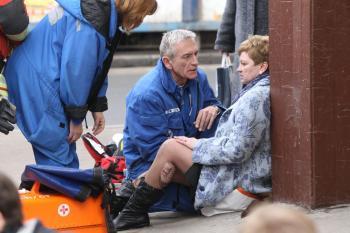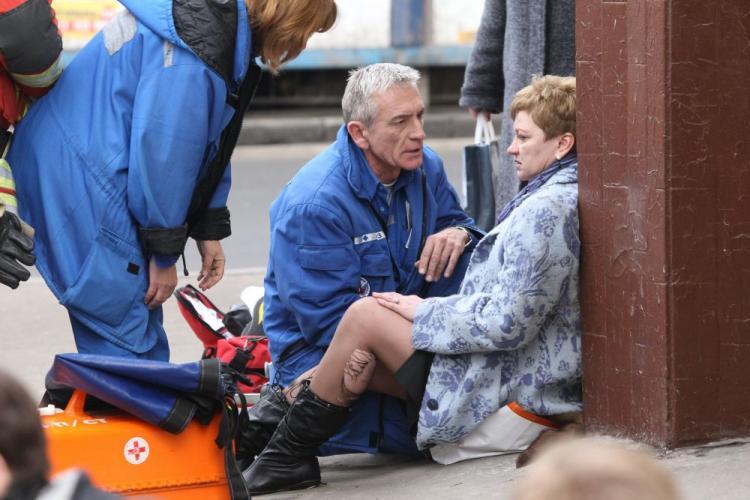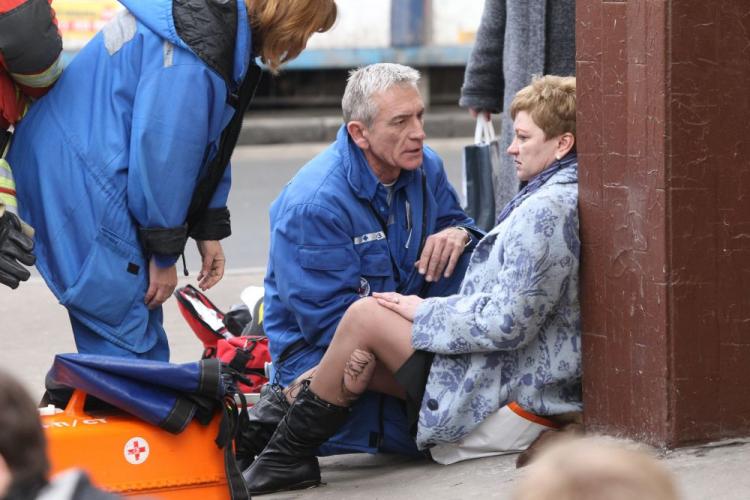Second Moscow Metro Suicide Bomber Identified
Family members have identified the body of their daughter, one of the two female suicide bombers implicated.

Medics help an injured woman outside the Park Kulturi metro station in Moscow on March 29, after two women suicide bombers blew themselves up on packed metro trains in central Moscow's morning rush hour. Family members have identified the body one of the two bombers, a teacher, implicated in the attacks that killed 40 people, reported the Russian newspaper Novaya Gazeta. The girl�s father said he had no idea how his daughter could have been involved with the attacks. Vladimir Fedorenko/AFP/Getty Images
|Updated:





